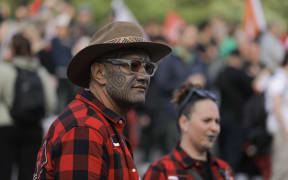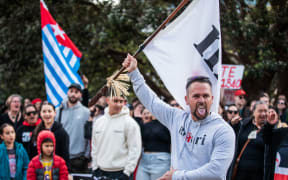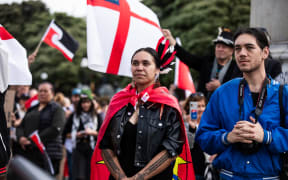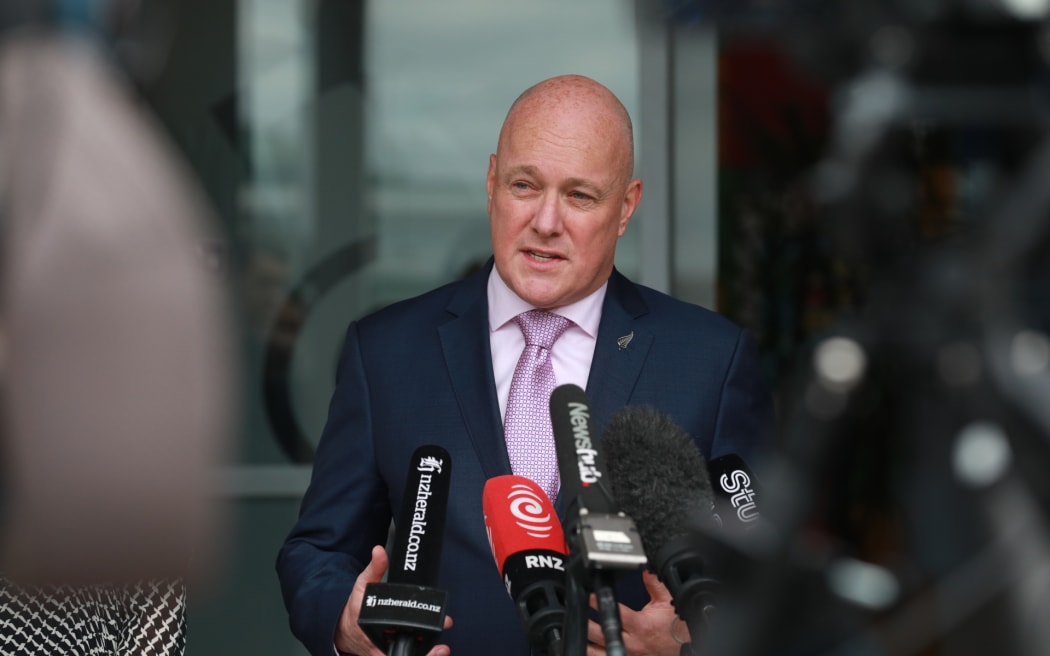
Prime Minister Christopher Luxon. File photo Photo: RNZ / Nick Monro
Prime Minister Christopher Luxon says the government plans to work for Māori and non-Māori alike, and protests are "unfair" for a government that's only been in power a week.
The protests taking place across New Zealand were part of a "National Māori Action Day", led by Te Pāti Māori and iwi, to challenge the government over its policies on the Treaty of Waitangi, and other policies affecting Māori.
These include switching from Māori to English names on various government departments, rewriting legislation to make mentions of the principles of the Treaty more specific, and progressing an ACT bill calling for the principles to be set down under its own prescription, rather than decades of jurisprudence.
Luxon suggested the government should be given more time to deliver better outcomes for Māori.
"I mean, Te Pāti Māori are free to activate their supporters and as long as they have a protest that's lawful, respectful and peaceful that's fine," he said.
"As I said yesterday unfortunately Māori have done poorly under the last Labour government over the last six years ... our government's only been going six days, and seven days today.
"I think it's pretty unfair to be honest, I think the reality is we're in government for a week, we are going to get things going - and for Māori and for non-Māori - and that's what our focus is going to be."
"We're ready to go but we are determined that Māori are going to do better under our government than they have in the last six years."
He said some of the more extreme rhetoric from both sides was not helpful - including Te Pāti Māori's claims of "genocide" over the smokefree plan, and Shane Jones calling that party's co-leader Debbie Ngarewa-Packer an "insidious native parrot".
He said he had constructive conversations with iwi leaders, which was important to him.
Māori-Crown Relations Minister Tama Potaka said the protests reflected genuine concerns from iwi, Māori, and community leaders about "some of the real underperforming economics that we're facing in this country".
"Maybe the language being used is a little bit more aggrieved, is a little bit more elevated, but the concerns about those inequalities dealing with historic sentiments have been genuine," he said.
"We're focused on solutions and outcomes and a lot of that will involve engaging with and devolving, decentralising resource and making sure we don't get carried away with bureaucratic costs."
He said there were more policies for Māori the new government could work on.
"I think that there are some policies that are yet to form, I think we'll be working those up with my own departments, in my own ministries."
Asked if he had raised concerns about any of the coalition's policies with Luxon, he said "we're investigating opportunities to deliver on the concerns and the problems that people raised today and previously and we'll continue to do that.
"We have robust debates every day."
The protests coincide with the Commission Opening of Parliament, the first day of the new Parliament where MPs will swear allegiance and elect a Speaker.
Te Pāti Māori has also raised concerns about the swearing-in, which requires MPs to swear allegiance to King Charles III. However, should they fail to do so, according to Parliament's current rules, they would be unable to perform their roles as representatives in the House.
Te Pāti Māori has suggested swearing allegiance instead to Te Tiriti o Waitangi.
Potaka said that was not the current correct procedure.
"Look, those aren't the protocols in place right now," he said. "The protocols of the tikanga of te whare paremata are slightly different to how it's been described and until those protocols are changed I'll be sticking with the protocols."
Deviation from that would be a discussion for later in the day, he said.
Luxon said he personally preferred things the way they were.
"My personal view is I like the status quo as we've got it today, I think it's entirely appropriate, I think it's entirely appropriate," he said.
He said what it would mean for Te Pāti Māori was up to them.
"What I'd just say, it's pretty hard to represent people if you're not in Parliament. So ultimately, that's a decision for them," Luxon said.
In the end, Te Pāti Māori MPs did swear allegiance to mokopuna under Te Tiriti o Waitangi, before also swearing allegiance to the King.
Tākuta Ferris, in ceremonial garb, was the first MP from the party to be called. After first swearing in te reo Māori, he made his oath in English.
"I, Takuta Ferris, swear that I will be faithful and bear true allegiance to our mokopuna according to tikanga Māori. I will perform my functions and duties and exercise my powers in accordance with Te Tiriti o Waitangi," he said.
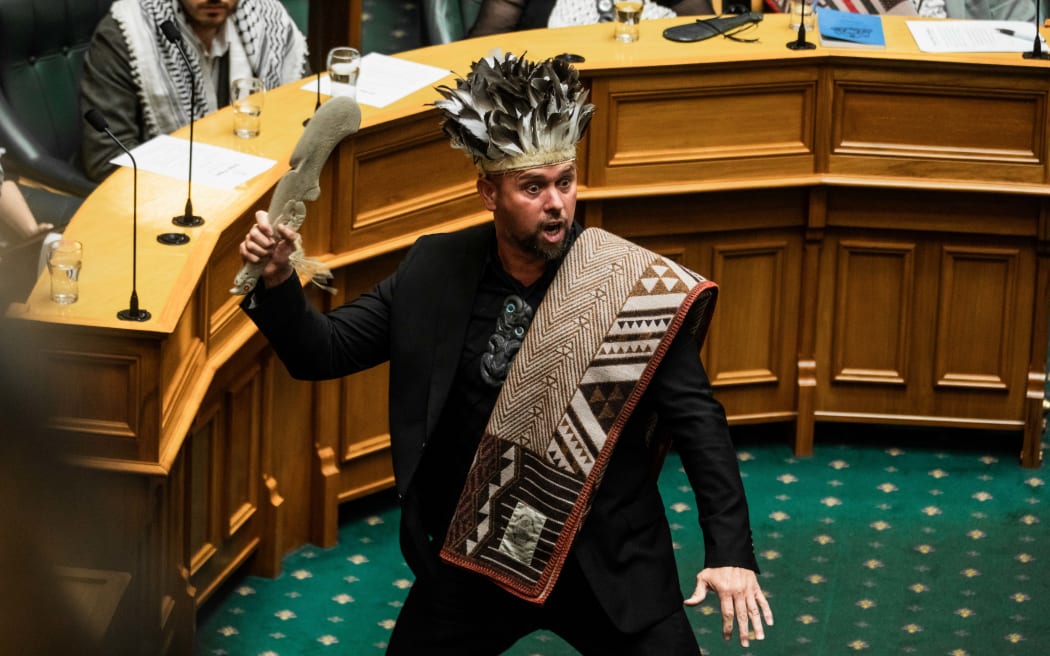
Te Pāti Maori MP Tākuta Ferris, in ceremonial garb, has sworn allegiance to Mokopuna under Te Tiriti o Waitangi before also swearing allegiance to the King. The first MP from the party to be called, he was accompanied by a karanga. Photo: RNZ / Samuel Rillstone
He then performed a haka before fulfilling the usual affirmation or oath of allegiance to the King, again in te reo Māori.
This was not disputed by the Clerk of the House, and other MPs continued to be sworn in.
The other members of the party were also sworn in, in the same manner.

